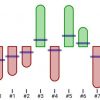-
 -1 +1
-1 +1Calculating pleasant stepping values for a chart
I needed pleasant range values for the charting API in Fuse. These are the values written by the ticks on the plot, typically on the Y-axis. In the interest of simplicity it should just work by def…
-
 +6 +1
+6 +1AI software is better than judges at determining whether criminal defendants are flight risks
When should a criminal defendant be required to await trial in jail rather than at home? Software could significantly improve judges’ ability to make that call—reducing crime or the number of people stuck waiting in jail. In a new study from the National Bureau of Economic Research, economists and computer scientists trained an algorithm to predict whether defendants were a flight risk from their rap sheet and court records using data from hundreds of thousands of cases in New York City.
-
 +15 +1
+15 +1How to Cut Cake Fairly and Finally Eat It Too
Computer scientists have come up with a bounded algorithm that can fairly divide a cake among any number of people. By Erica Klarreich.
-
 +20 +1
+20 +1This Bee-Inspired Algorithm Helps Delivery Companies Plan The Most Efficient Route
For a delivery truck making rounds, minor tweaks in a route can save huge amounts of time and gas. That's why UPS spent a decade and hundreds of millions of dollars building an algorithm to help calculate where trucks should turn. A startup called Routific designed an algorithm to help everyone else—like local flower delivery companies—also save fuel. To help find the best routes, they took inspiration from bees. Their algorithm is based on the "bees algorithm," which describes how bees find the best route to flowers.
-
 +43 +1
+43 +1This Guy Trains Computers to Find Future Criminals
Richard Berk says his algorithms take the bias out of criminal justice. But could they make it worse? When historians look back at the turmoil over prejudice and policing in the U.S. over the past few years, they’re unlikely to dwell on the case of Eric Loomis. Police in La Crosse, Wis., arrested Loomis in February 2013 for driving a car that was used in a drive-by shooting. He had been arrested a dozen times before. Loomis took a plea, and was sentenced to six years in prison plus five years of probation.
-
 +30 +1
+30 +1A physicist's algorithm spots the patterns behind terrorist attacks
A physicist has developed an algorithm to spot the patterns behind terror attacks that he says could be helpful in predicting and even preventing future attacks. Neil Johnson, a professor of physics at the University of Miami in Florida, assembled a team of physicists to create a mathematical model that analyzes pro-Islamic State posts on social media sites. "We were really interested in the hardcore pro-ISIS support," he tells guest host Josh Bloch on CBC Radio's Day 6. "This is people who are exchanging operational details."
-
 +19 +1
+19 +1We Must Not Accept an Algorithmic Account of Human Life
One remarkable development of twentieth century science is the discovery that both physical structures and the communication of ideas can be assembled on...
-
 +25 +1
+25 +1New algorithm could construct first images of black holes
Researchers from MIT’s Computer Science and Artificial Intelligence Laboratory and Harvard University have developed a new algorithm that could help astronomers produce the first image of a black hole. The algorithm would stitch together data collected from radio telescopes scattered around the globe, under the auspices of an international collaboration called the Event Horizon Telescope. The project seeks, essentially, to turn the entire planet into a large radio telescope dish. “Radio wavelengths come with a lot of advantages,” says Katie Bouman, an MIT graduate student in electrical engineering and computer science...
-
 +30 +1
+30 +1We Now Have Algorithms To Predict Police Misconduct
On a sweltering Monday in late June 2015, the city council in Charlotte, North Carolina, met to discuss, among other items in a seven-hour marathon, how to carry out a controversial new approach to predicting police misconduct. Opinions were divided, and the discussion was tense. One council member was afraid of “upsetting the troops.” A second called the use of data about individual police officers an invasion of privacy.
-
 +42 +1
+42 +1Machines Are Better Than Humans at Hiring the Best Employees
When an algorithm picks the candidate, they stay longer, new research finds. People want to believe they have good instincts, but when it comes to hiring, they can't best a computer. Hiring managers select worse job candidates than the ones recommended by an algorithm, new research from the National Bureau of Economic Research finds. Looking across 15 companies and more than 300,000 hires in low-skill service-sector jobs, such as data entry and call center work...
-
 +21 +1
+21 +1Netflix knows the exact episode of a TV show that gets you hooked
A TV pilot may get you interested in a show, but Netflix says it's rarely the episode that gets you hooked. It's probably no surprise that Netflix has been analyzing our TV-watching habits to figure out exactly how we all get obsessed with certain series. It hasn't come to any conclusions about precisely what gets us addicted, but it's found that there tends to be an early episode in each series that, once viewers watch it, leads to...
-
 +27 +1
+27 +1Google's new Brotli compression algorithm is 26 percent better than existing solutions
Google is introducing a new compression algorithm named Brotli, which it says can reduce file sizes up to 26 percent over existing solutions. The increased density is achieved by “a 2nd order context modeling, re-use of entropy codes, larger memory window of past data and joint distribution codes.” Its current compression algorithm, Zopfli, isn’t being buried (yet, at least). Google notes Zopfli is already in use across...
-
 +17 +1
+17 +1Unbounded High Dynamic Range Photography using a Modulo Camera
This paper presents a novel framework to extend the dynamic range of images called Unbounded High Dynamic Range (UHDR) photography with a modulo camera. A modulo camera could theoretically take unbounded radiance levels by keeping only the least significant bits. We show that with limited bit depth, very high radiance levels can be recovered from a single modulus image with our newly proposed unwrapping algorithm for natural images.
Submit a link
Start a discussion




















